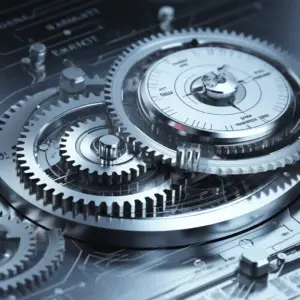
AI in Sports: Optimizing Performance and Strategy

Performance improvement, With the rise of AI, athletes and teams are pushing performance to new heights. AI is changing sports play, analysis, and strategy.
Enhancing Performance
One of the key areas where AI is making a significant impact is in optimizing athlete performance. With the help of AI-driven wearables, sensors, and tracking devices, coaches and players have access to real-time data about physical exertion, heart rates, biomechanics, and more. Performance Enhancement data allows trainers to monitor an athlete’s condition, detect early signs of fatigue or injury, and design personalized training programs to maximize performance while minimizing the risk of injuries.
Additionally, AI-powered computer vision systems provide detailed analysis of an athlete’s movements, helping them refine their techniques. By comparing an athlete’s performance with historical data or professional benchmarks, AI algorithms can identify areas of improvement, suggest modifications, and provide precise feedback for enhanced skill development.
Strategic Insights
AI is transforming game strategy. Advanced algorithms examine massive amounts of past performance data to detect patterns, trends, and opponent weaknesses. AI systems use machine learning to analyze data faster and more precisely than humans, giving coaches vital insights and statistics to make informed match selections.
Furthermore, AI-driven analytics can assess and predict the outcome of different scenarios, helping teams optimize their gameplay. From suggesting the best lineup or formation to predicting opponents’ moves, AI helps coaches and players develop effective strategies that can give them a competitive edge.
The Future of AI in Sports
The integration of AI in sports is poised to grow rapidly in the coming years. The continuous refinement of AI algorithms combined with advancements in data collection technology will result in even more accurate performance analysis and strategic recommendations. AI will play a crucial role in training young athletes, monitoring their progress, and identifying those with exceptional potential.
Moreover, the fan experience is also being transformed through AI. With the aid of AI-driven tools, fans can enjoy personalized content, immersive experiences, and real-time analytics during matches. AI chatbots are being utilized to deliver instant updates, player statistics, and engage in interactive conversations with fans.
Athletes, teams, and fans are embracing the benefits of AI in sports. The optimization of performance and strategic decision-making that AI offers has the potential to revolutionize the world of sports as we know it.
How is artificial intelligence being used in sports to enhance performance and optimize strategy?

Artificial intelligence (AI) is being increasingly employed in the sports industry to enhance performance and optimize strategy. Here are a few ways AI is being utilized:
1. Performance Analysis
AI algorithms can analyze vast amounts of data, such as player statistics, game footage, and biometric information, to identify patterns and provide insights into player performance. This allows coaches and trainers to make data-driven decisions to improve training regimens and enhance individual and team performance.
2. Injury Prevention
AI systems can monitor players’ movement patterns and biomechanics to detect potential injury risks. By analyzing data, AI algorithms can identify specific patterns or irregularities that may indicate a player is at a higher risk of injury, allowing preventative measures to be taken in order to reduce the likelihood of injury occurrences.
3. Player Recruitment and Scouting
AI can assist in the scouting process by analyzing player statistics and performance data from different sources. Performance Enhancement enables teams to identify and evaluate talent more efficiently. AI algorithms can also learn from the historical performance data of players, helping teams make better decisions when it comes to recruiting new players.
4. Game Strategy and Analysis
AI can be used to evaluate a team’s performance, as well as that of their opponents, to help coaches develop effective game plans. AI algorithms can analyze historical data, identify patterns, and provide insights into opponent strategies, weaknesses, and strengths. This information can be used to optimize in-game decision-making and develop winning strategies.
5. Fan Engagement
Sports fans benefit from AI. AI-powered chatbots may interact with fans, provide real-time information, and even deliver customised material depending on their interests.AI can create vivid virtual simulations for fans.
These are some sports AI examples. New AI applications improve player performance, optimize team strategy, and improve spectator experience.
What specific applications of AI technology are being implemented in the realm of sports performance and strategy?
There are several specific applications of AI technology being implemented in the realm of sports performance and strategy. Some of them include:
1. Performance analysis: AI algorithms are used to analyze player performance data, such as movement patterns, fitness metrics, and game statistics, to gain insights into individual and team performance. This information can help coaches and players make data-driven decisions and optimize training strategies.
2. Injury prevention and rehabilitation: AI systems can analyze players’ biomechanics and detect anomalies that may lead to injuries. Performance Enhancement can also provide personalized rehabilitation programs based on individual player data, aiding in faster recovery and reducing the risk of reinjury.
3. Virtual coaching: AI-powered virtual coaching systems can provide real-time feedback and analysis to athletes during training sessions. These systems use computer vision and motion tracking technologies to assess technique and offer suggestions for improvement.
4. Game strategy and tactics: AI algorithms can analyze vast amounts of historical game data to identify patterns and trends. This analysis helps coaches devise game strategies, make in-game decisions, and optimize team formations.
5. Scouting and recruitment: AI technology assists in player scouting and recruitment by analyzing large datasets and identifying potential talent based on performance metrics and other criteria. Performance Enhancement helps teams discover hidden gems and make informed decisions during the player selection process.
6.Fan engagement: AI-powered chatbots and virtual assistants can deliver real-time updates, game statistics, and answers to fans. This increases fan interaction and immersion.
AI technology is transforming the sports sector by improving performance, optimizing strategies, and delighting spectators.
What are the potential advantages and challenges associated with utilizing AI in sports for performance optimization and strategic decision-making
There are several potential advantages and challenges associated with utilizing AI in sports for performance optimization and strategic decision-making:
Advantages:
1. Data analysis: AI can process and analyze large amounts of data quickly and effectively, providing valuable insights into player performance, opponent analysis, and game strategies.
2. Performance optimization: By analyzing data on individual player’s performance, AI can identify patterns, weaknesses, and areas for improvement, allowing coaches to develop personalized training programs.
3. Injury prevention: AI can monitor player performance, training load, and fatigue levels to identify potential injury risks. Coaches and medical staff can use this information to make informed decisions about workload and recovery strategies, reducing the risk of injuries.
4. Game strategy: AI algorithms can analyze various factors like player performance, opponent analysis, and game conditions to suggest optimal game strategies. Performance Enhancement can help coaches make more informed decisions during matches and improve overall team performance.
5. Real-time analysis: AI can analyze live feeds of sports events and provide real-time insights and suggestions to coaches and players. This can enable adaptive decision-making and enhance in-game performance.
Challenges:
1. Data quality and availability: AI models require large amounts of accurate and reliable data to function effectively. However, sports data can be incomplete, subjective, or difficult to obtain, making it challenging to train AI models accurately.
2.Ethical issues: AI in sports involves privacy concerns relating to the collecting and analysis of personal and sensitive data. Decision-making algorithms may be biased and unfair.
3. Integration with existing systems: Integrating AI technologies with existing sports systems and workflows can be complicated and need extensive infrastructure and training.
4.Interpretability: AI models are black boxes, making it hard to grasp how they make suggestions. Coaches and athletes who value human intuition may resist this lack of interpretability.
5. Reliance on technology: Over-reliance on AI technologies may reduce human decision-making abilities and intuition, potentially decreasing coaches and players’ strategic planning and game execution.
AI may improve sports performance optimization and strategic decision-making, but its implementation is complicated.









Your article helped me a lot, is there any more related content? Thanks!
Rattling great information can be found on blog.Raise
your business